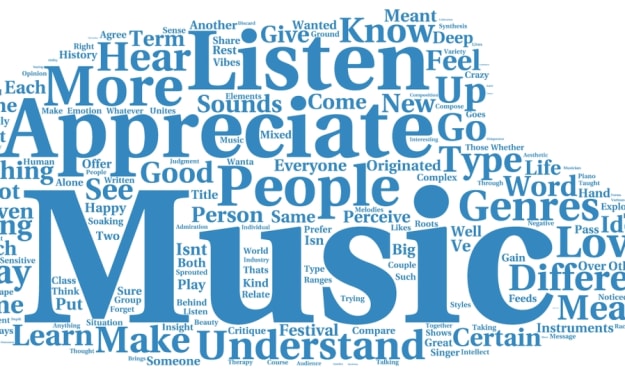What is Lyric and how to write song Lyrics ?
Defination of lyrics

A lyric is a fairly short poem which is the expression of strong feelings of thoughts or perceptions of a single speaker in a meditative manner. The lyric was originally in Greek poetry; the kind of poem which was to be set to the lyre; hence the word lyric. But even today the word still retains the sense that lyric poems are musical.
In fact the word is also used in music to denote “lines of a song”. The term “lyric” includes any types of poems with the very general qualities of being personal and emotional in expression, being meditative, and being musical: so sonnets, elegies and metaphysical poems, romantic poems and even ballads and odes may be ‘lyrical’. So the word ‘lyric’ is related to expression and not form. Most lyrics are meditation on loneliness by the poet, but lyric can also be dramatic if it is addressed to a specific person. For example, John Donne’s “Canonization” is also a lyric in expression, though it is also dramatic due to its use of ‘monologue’. And though the lyric is spoken by an “I”, it need not be the poet himself: we should understand the lyric in terms of an imaginary speaker or character. Love is a common topic for poems with the lyrical manner of expression, but death and other emotionally engaging subjects can also be the subjects of a lyrical poem. And romantic poems which are personal poems with the spontaneous kind of expression are also usually lyrics. The poem “Break Break Break” is also a typical lyric because it is the personal and emotional expression of the poet’s feelings in the form of a meditation. It is partly dramatic due to its direct address to the cliffs and it is also musical. There are many lyrics like: My Mistress’s Eyes are Nothing..., Canonization, Tyger, I Wonder Lonely as a Cloud, Break Break Break, The Mother, etc. in English literature.
lyrics, it can be overwhelming to imagine where to start. I often hear from my online students how relieving it is to bring structure and tools into the mix as we delve into lyric writing. Within the first four weeks, most students have much greater clarity about what makes a good lyric, and how to craft one.
1. Start with what you want to say.
The first tip when learning how to write lyrics for a song is get familiar with journaling and using your senses. Taste, touch, sight, sound, smell, and movement are descriptors that help bring your listener into an experience of a small moment. A small moment is a snapshot of life, a scene where your song is set within.
We hear these small moments all over in songwriting – the singer’s bedroom at 2 AM, driving down Santa Monica Boulevard, or hot-wiring a stolen car. It’s these moments that place the listener in the heat of the moment. Try choosing a small moment and writing about it using your senses of taste, touch, sight, sound, smell, and movement. Don’t try to rhyme, and don’t write with a particular rhythmic pattern. Just write.
2. Read lyrics from other artists (don’t listen to the songs!).
Notice how much repetition, simple language, and how clean and clear is the main message in the chorus. What message do you want your listener to walk away from the song knowing? This is your chorus. What small moment shows a great example of that main message? This is your first verse.
3. Notice the conversational quality.
The third tip for writing song lyrics is write like you speak. We speak English, we write English, we tell stories from our lives, and have meaningful conversations with friends. But for some reason as soon as we start lyric writing, we believe those skills are not enough. We get obscenely abstract and poetic; we contort the language to get our rhymes to fall at the ends of the lines even when the content no longer makes sense. We forget what we’re really trying to say in the first place, trying to give the song a breadth and meaning that DaVinci himself couldn’t capture in the expression on Mona Lisa. Why? Because we almost failed high school English class? Perhaps. But keep in mind that the most important quality of a great lyric is authenticity. Write like you would if you were relaying the story to a small group of people who care about you and what you have to say.
4. Lengthy lyrics compound problems.
Try writing a simple verse (such as four or six lines) moving into a chorus with lots of repetition. Or, try starting a song with the chorus. Simplicity is hard to master, but worth pursuing. The longer a lyric becomes, the greater the potential for confusion.
5. Collaborate as frequently as possible with good lyricists.
Soak up some of that good lyric writing energy, and you’ll soon realize that you have good ideas too. You’ll also soon realize how closely linked lyric rhythm is to melodic rhythm, opening up a whole new area for your melodies and lyrics alike.
For any query visit
About the Creator
Amit Chopra
Amit is a 22 years old Blogger and a Digital Marketer who run's multiple website's.






Comments
There are no comments for this story
Be the first to respond and start the conversation.